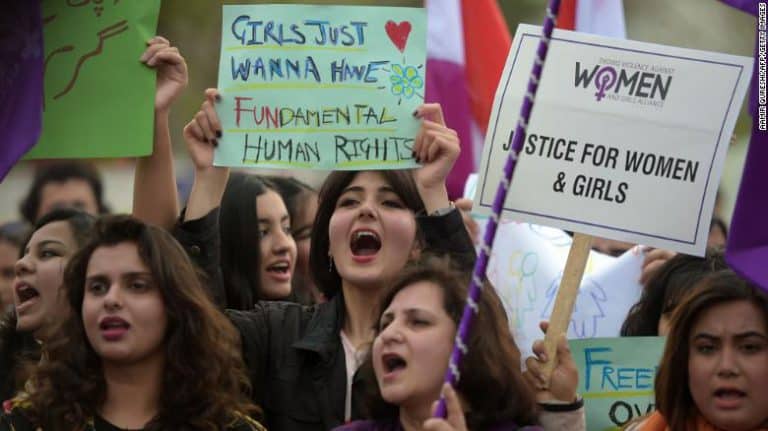From mainstream media to entertainment, portrayal of women as ‘damsels in distress’ is a phenomenon all too common
Aroosa Shaukat
But the battle is far from over. From mainstream news media to entertainment industry, portrayal of women as the usual ‘damsel in distress’ is a phenomenon all too common, says White Ribbon CEO, Omer Aftab. “There has been so much reinforcement of stereotypes altering societal attitudes for so long that it almost always puts the blame on women, even when they are the victims,” he says. A campaigner for women’s rights, Aftab says fighting patriarchy is all the more challenging since it exists in varying forms in different strata of the society.
For rights campaigners, sensitisation of mainstream media has remained a challenge for far too long, says Aftab. Citing instances of news coverage of rape and abuse forcing victims to flee their neighbourhoods and even cities, Aftab says, at times, news coverage has amounted to nothing short of a ‘second assault’ on abuse survivors. And it doesn’t end there. With crime re-enactment shows taking much of primetime spots on news channels, the focus has been on sensationalising crime. “Somewhere in that process, the plot is lost. There is indirect condemnation of the victim instead of the perpetrator,” he says.
In 2013, a media code of ethics was developed by White Ribbon following focused group discussions with journalists across the country, which was endorsed by over 150 journalists at its launch the same year. With vows made to re-evaluate news reporting, rights campaigners felt mainstream journalists made an effort to act responsibly. Aftab notes that in the past five years there has been a noticeable change in how media reports such stories, though the same remains questionable in some quarters. Another problem is the tone set in some talk shows, especially by hosts. “What needs to be understood is the influence these individuals carry. We also need to look at the mindset of the people in media itself, and how that shapes public opinion and attitude,” he says.
Mazaaq Raat, a television talk show aired on a private news channel, which featured Mohsin Abbas, recently started issuing disclaimers following the domestic abuse allegations against the actor-singer. The disclaimer stated that the channel has distanced itself from the actor in the wake of the recent allegations since some episodes were recorded prior to the case, they have content that features Abbas. The channel has said that until the actor clears his name, he will not be part of future episodes of the show. The disclaimer was run recently before and during the airing of the show.
Aftab says some major cases of violence were brought to light after these were taken up on social media. Allegations against Abbas were also initially taken up on social media following her wife’s posts on Facebook and Twitter. “Voices that are being raised through social media are difficult to silence,” says Aftab. However, for campaigners the difficulty is in gauging how media weighs out issues of abuse and social injustice against other mainstream stories. For rights activists, convincing mainstream media to continue to focus on these issues remains difficult. “Unless there is an incident, no one is willing to take up the issue till there is a pressure from social media. Wait for another ten days and see how many in the news media continue to talk about abuse or violence against women.”


4345 282265Wohh exactly what I was searching for, regards for putting up. 622985